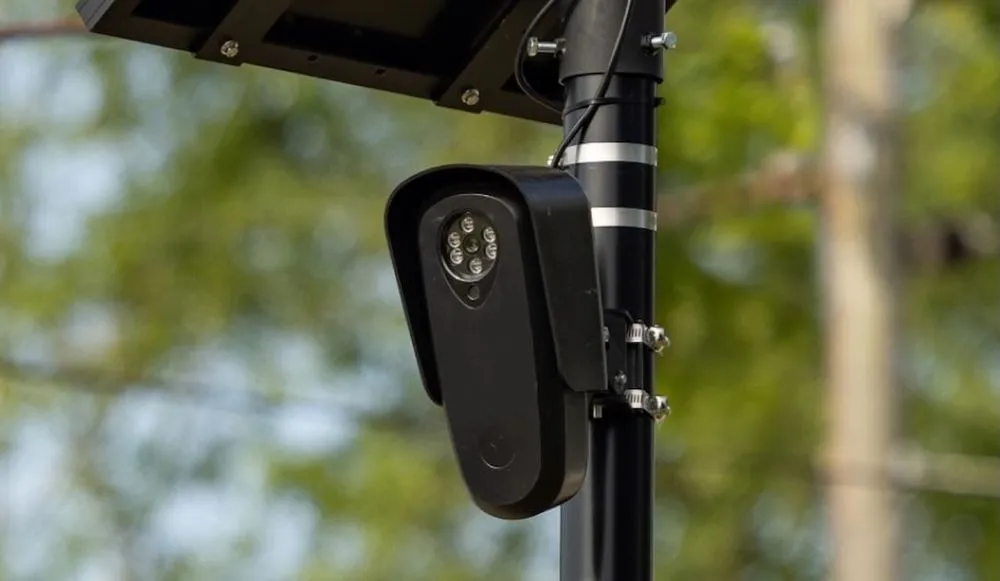Schools are next for Flock Safety’s automatic license place reader cameras
The controversial automatic license plate reader (ALPR) company Flock Safety is preparing to roll out its network of surveillance cameras to schools.
School safety company Raptor Technologies says it will integrate Flock cameras into a product designed to enhance dismissal procedures.
The announcement, made this week, comes as Atlanta-based Flock has drawn attention from privacy advocates and other groups in recent months.
In May, Texas authorities reportedly performed a nationwide search combing through images from more than 83,000 Flock cameras to track down a woman they said had self-administered an abortion. The search reportedly included a probe of footage collected in states where abortion is legal.
A lawsuit filed by the nonprofit law firm the Institute for Justice contends that Flock “maintains a centralized database with over one billion license plate reads every month.” The lawsuit is seeking to force authorities in Norfolk, Virginia, to stop using Flock cameras.
About 4,500 law enforcement agencies and 1,000 businesses across the country have installed Flock cameras, which are used to track vehicles, including by allowing police to conduct nationwide searches of where they travel.
‘Safe corridors for student travel’
Houston-based Raptor partners with some 60,000 schools, providing software as a service and mobile technologies.
A Flock website post announcing the partnership emphasized how its “impact extends beyond the school gate.”
“By working with both schools and local law enforcement, Flock helps create safe corridors for student travel — whether that’s monitoring activity along walking routes, at bus stops, or on nearby roads,” the post said.
In a press release, Flock and Raptor emphasized how easy it will be for schools to begin using the surveillance technology, which it noted can be “installed quickly and cost-effectively, without the need for trenching, cabling, or complex infrastructure.”
Privacy advocates and civil libertarians are troubled by the development.
"There is a pattern when schools adopt such technologies: parents aren’t consulted or asked for consent, vulnerable student populations are impacted and already limited resources are diverted without actually achieving the intended goal,” said Kristin Woelfel, policy counsel in the Center for Democracy and Technology’s Equity in Civic Technology division.
“Schools are meant to be places of learning, not expansion points for police surveillance.”
Jay Stanley, a senior policy analyst at the ACLU, said it will be important to understand if Flock and Raptor have plans to “make money on the side of the data the system collects.”
Flock and Raptor did not immediately respond to requests for comment.
Suzanne Smalley
is a reporter covering digital privacy, surveillance technologies and cybersecurity policy for The Record. She was previously a cybersecurity reporter at CyberScoop. Earlier in her career Suzanne covered the Boston Police Department for the Boston Globe and two presidential campaign cycles for Newsweek. She lives in Washington with her husband and three children.



